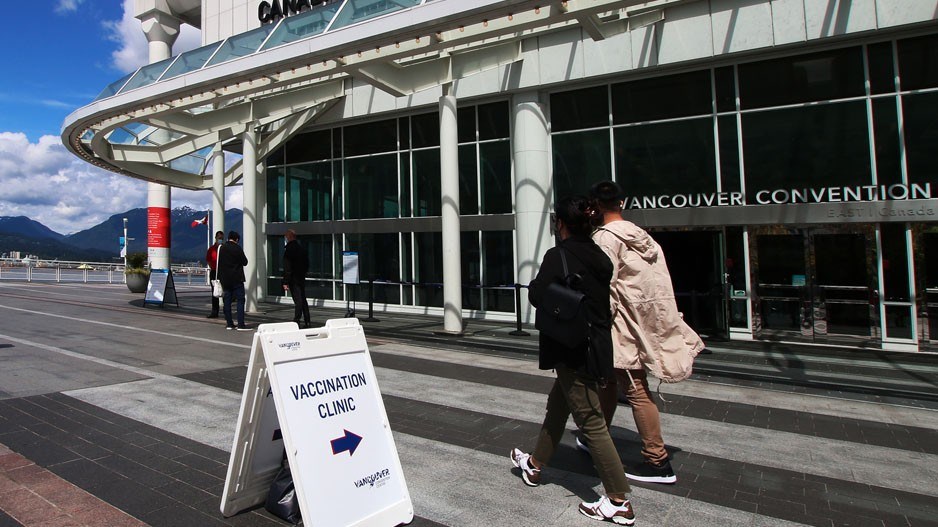As residents of British Columbia undoubtedly learned over the past few days, we are headed into a federal election campaign.
A visit from Prime Minister Justin Trudeau included “campaign-style” announcements on issues such as child care and transportation, a sure sign that the governing Liberal Party seeks to regain its 2015 position as the most popular federal party in the province.
Some parts of Canada have begun to ease restrictions related to the COVID-19 pandemic, a development that is especially welcome in areas where the lockdowns were more stringent. The federal government has been the main beneficiary of the current state of affairs. In the latest survey by Research Co. and Glacier Media, 61% of Canadians are satisfied with the way Ottawa has dealt with COVID-19, up 10 points since mid-May and the highest since November 2020.
If the federal election becomes a referendum on COVID-19 management, the Liberals would enter the campaign with at least two-thirds of residents of Atlantic Canada (73%) and Quebec (67%) voicing satisfaction with their efforts. The numbers are lower, but still encompass a majority of residents, in Saskatchewan and Manitoba (62%), Ontario (54%), Alberta (53%) and British Columbia (52%).
Other levels of governments also see improved results this month. We found that 63% of Canadians are satisfied with their municipal governments on COVID-19, up from 52% in mid-May.
Canada’s four most populous provinces continue to fare differently. The proportion of residents of both British Columbia and Quebec who are happy with how their provincial administration has managed the pandemic increased by 10 points since mid-May to reach 72% and 71% respectively.
The numbers continue to be more modest for Ontario and Alberta, although there are marked gains in both provinces. Just over half of Ontarians (51%) are satisfied with how their provincial government has handled COVID-19 (up nine points). Slightly fewer Albertans (46%) outline the same sentiment (up 12 points). In spite of this upward trend, this is the fifth consecutive survey where Alberta cannot reach 50% on this particular indicator.
In mid-May, 55% of Canadians believed that the worst of the COVID-19 pandemic was “behind us.” This month, the proportion of the country’s residents who feel this way has increased by 17 points to 72%. For the first time, more than seven in 10 Canadians think that a post-pandemic existence is near.
We could look at these numbers and assume that Canadians are ready and willing to flip a switch and go back to the way they went about their lives before March 2020. This would be a mistake. Across the country, 77% consider COVID-19 as a “very serious” or “moderately serious” problem.
The proportion of Canadians who continue to deem the pandemic as serious is highest in British Columbia and Atlantic Canada (81% each), followed by Alberta (78%), Ontario (77%), Quebec (75%) and Saskatchewan and Manitoba (71%). There is no region of the country where a majority of residents are ready to lay down their guard.
This cautious approach is also present in the answers we have been tracking to questions about travel and leisure activities. Three in four Canadians (75%, down five points) would keep the border with the United States closed to non-essential travel. Seven in 10 (71%, down eight points) want to continue placing all travellers arriving to Canada into a mandatory 14-day quarantine or isolation period. These are significant drops from what we have observed in previous surveys this year, but nowhere near unanimity when it comes to abandoning existing guidelines.
We also see a bit of a drop when Canadians are asked if all customers or visitors entering indoor premises should wear a face covering while inside, from 84% in mid-May to 79% now. Some jurisdictions have abandoned the mask mandate, but not all Canadians are ready to follow the same path just yet.
In spite of the lure of the summer months, we continue to see majorities of Canadians wishing to prohibit both non-essential travel from one province to another (65%, down nine points) and non-essential travel inside provinces (59%, down eight points). Once again, the fluctuations are substantial when compared to the opinions expressed by Canadians a few weeks ago, but we are not at a level that would lead most people to start booking flights or hotels.
Canadians are aware that the biggest hindrances of the pandemic – lockdowns and limited mobility – appear to be fading away. Still, there is no wish to immediately return to life before we knew what COVID-19 was. Establishing imaginary deadlines such as “the fall” as the moment when border crossings should return to normal would be akin to following the advice of now-jobless heads of state who pointed to a calendar with little regard for what was happening on the ground. Canadians, who have experienced the ups and downs of the pandemic, are not that naïve.
Mario Canseco is president of Research Co.
Results are based on an online study conducted from July 9 to July 11, 2021, among 1,000 Canadian adults. The data has been statistically weighted according to Canadian census figures for age, gender and region. The margin of error, which measures sample variability, is plus or minus 3.1 percentage points, 19 times out of 20.




